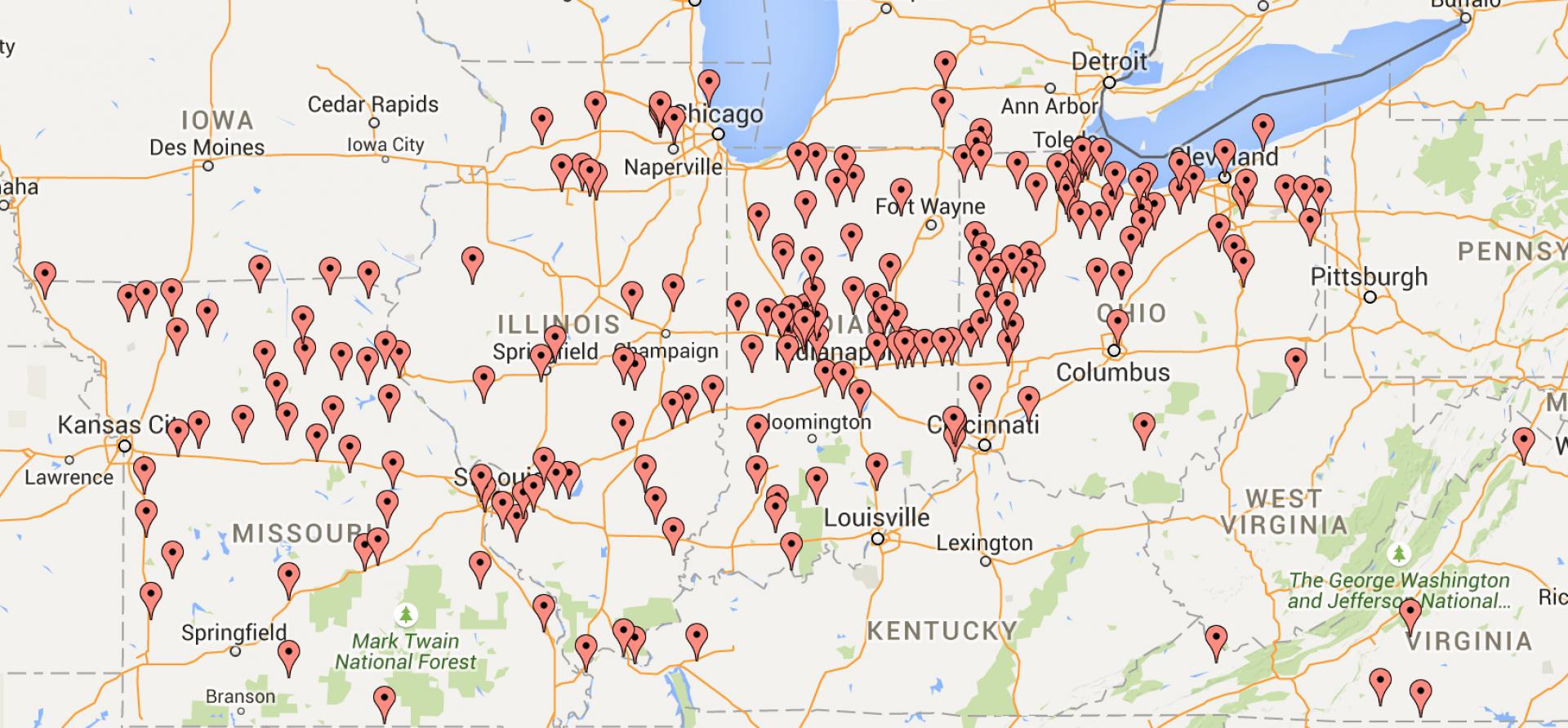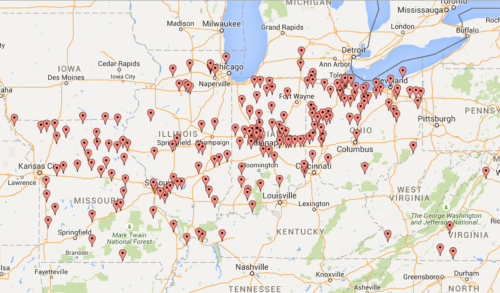Prairie State, Sold as a Clean Coal Plant, Wants a Pass on New EPA Rules

The president of Prairie State Generating Co. has asked the Environmental Protection Agency to exempt the coal-fired Prairie State Energy Campus in southern Illinois from new pollution-control rules.
In a May 11 letter to the EPA, Prairie State’s chief executive, Don Gaston, writes that the controversial plant cannot survive if—under new regulations aimed at curbing carbon-dioxide emissions—it is relegated to a back-up role in favor of cleaner sources of energy. The letter, addressed to Joseph Goffman, an EPA official in Washington, and obtained through a public records request, puts forth a number of deceptive arguments as to why the plant should be given a pass.
It is laced with unspoken irony, too, failing to mention the original sales pitch for how the plant would be a low-cost, clean-electricity generator and overlooking the economic distress Prairie State Energy Campus has caused its many member communities.
Gaston’s letter is shockingly disingenuous on three points in particular:
- It fails to note that the pitchmen behind the plant promised scores of communities across the Midwest a few years ago that the long-anticipated EPA crackdown on carbon-dioxide emissions wouldn’t affect Prairie State. Proponents swore at the time that the facility would be equipped with cutting-edge pollution controls that could handle such regulations. American Municipal Power, which owns the largest slice of the plant, commissioned an engineering study in 2007 that rated potential federal carbon-dioxide regulation a “high” risk, but said the risk could be handled by monitoring and remediation. That same report said Prairie State electricity would be a good deal even with the imposition of new pollution-control rules.
- It insists that Prairie State simply must be allowed to operate at full capacity, even though the plant has never come close to doing so. The plant has failed dismally time and again to meet the 80 percent capacity factor performance target it promised bondholders and municipalities. The plant operated at 59 percent capacity factor in 2013, 70 percent in 2014 and 65 percent this year, according to the most recent available data (January-May). Gaston also asks the agency not to use actual emissions data from Prairie State in 2012 as a basis for their calculations, but to go by a “proxy tonnage amount” to calculate the plant’s emissions—in other words, to guess at how much Prairie State is polluting rather than using actual plant performance data.
- It tries to persuade the EPA that curtailing the plant’s operations would prevent member municipalities and rural electric cooperatives who “depend on its base-load dispatch” from recouping their investment. Given the level of economic hardship that the high rates from Prairie State are already causing dozens of communities, the following sentence in the letter only adds insult to injury: “Should U.S. EPA fail to permit utilities/municipalities to realize the full economic life of these assets, Prairie State’s case, our Owners could face very difficult economic times.”
Recall that the 1600-megawatt plant was developed by Peabody Energy 10 years ago next to its Lively Grove coal mine. As construction costs rose, Peabody shifted 95 percent of the ownership—and the risk— to eight municipal power agencies, which collectively issued $5 billion in bonds backed by the electric revenues of 200 municipalities in the Midwest and Virginia, many of them induced into signing 50-year contracts. Today the power generated by Prairie State is at least twice as expensive as electricity that could be purchased on the wholesale market. That’s thanks to the plants many operational problems, which are likely caused by the poor quality of the Lively Grove coal.
How should the EPA respond to Gaston’s audacious request?
For starters, it should do what 200 municipalities wish they had done eight years ago: take the pro-Prairie State rhetoric with a block of salt. And of course agency officials should be wary of the dangerous precedent of exempting the nation’s largest new coal plant from the nation’s newest air pollution rules.
Prairie State’s technical and financial problems cannot be laid at the feet of the EPA, and should not be used as an excuse for failure to meet clean air standards.
Sandy Buchanan is IEEFA’s executive director.
















